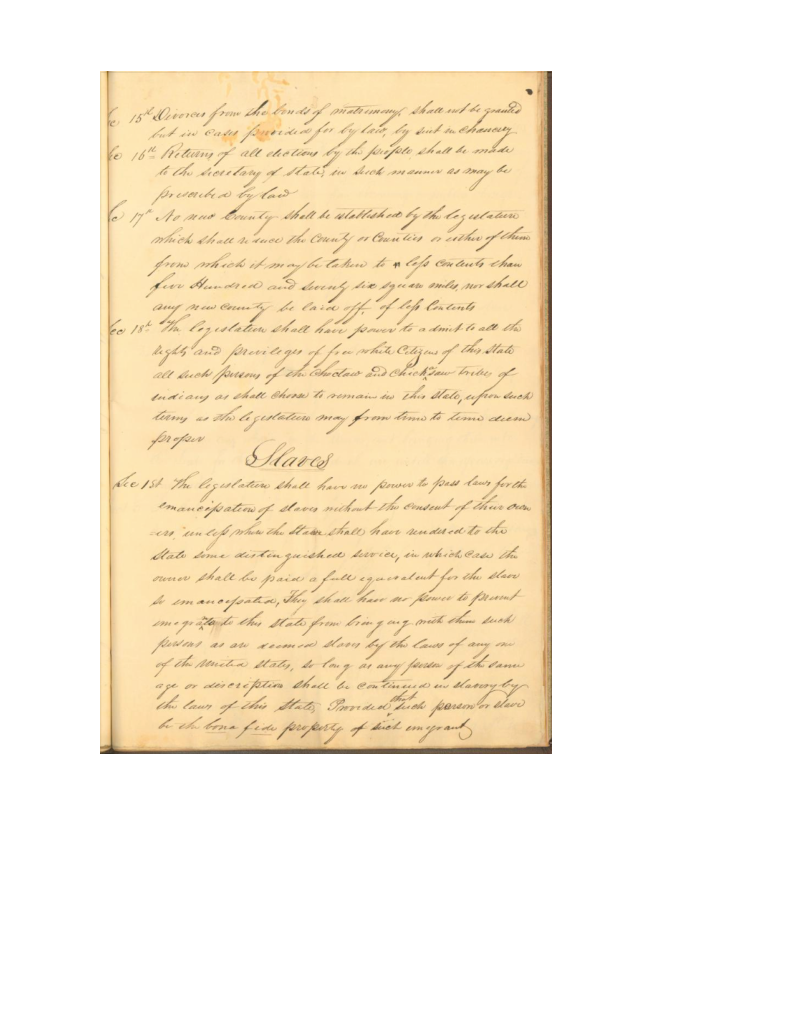The 1832 Mississippi Constitution contains slave codes.
- Type
- Government Document
- Source
- N/A Non-LDS
- Hearsay
- Direct
- Reference
Second Constitution of Mississippi, Mississippi Department of Archives and History, Series 0549, images 36-37
- Scribe/Publisher
- Mississippi Department of Archives and History
- People
- N/A
- Audience
- Reading Public
- Transcription
Slaves
Sec 1st The legislature shall have no power to pass laws for the emancipation of slaves without the consent of their owners, unless where the slave shall have rendered to the state some distinguished service, in which case the owner shall be paid a full equivalent for the slave so emancipated. They shall have no power to prevent emigrants to this state from bringing with them such persons as are deemed slaves by the laws of any one of the United States, so long as any person of the same age or description shall be continued in slavery by the laws of this state: Provided, That such person or slave be the bona fide property of such emigrants: And provided, also, That laws may be passed to prohibit the introduction into this state, of slaves who may have committed high crimes in other states. They shall have power to pass laws to permit the owners of slaves to emancipate them, saving the rights of creditors, and preventing them from becoming a public charge. They shall have full power to oblige the owners of slaves to treat them with humanity, to provide for them necessary clothing and provisions, to abstain from all injuries to them extending to life or limb, and in case of their neglect or refusal to comply with the direction of such laws, to have such slave or slaves sold for the benefit of the owner or owners.
Sect 2nd The introduction of slaves into this state as merchandise or for sale, shall be prohibited from and after the first day of May, eighteen hundred and thirty-three: Provided, That the actual settler or settlers shall not be prohibited from purchasing slaves in any state in this Union, and bringing them into this state for their own individual use, until the year eighteen hundred and forty-five.
Sect 3 In the prosecution of slaves for crimes of which the punishment is not capital, no inquest by a grand jury shall be necessary: but the proceedings in such cases shall be regulated by law.
The B. H. Roberts Foundation is not owned by, operated by, or affiliated with the Church of Jesus Christ of Latter-day Saints.

